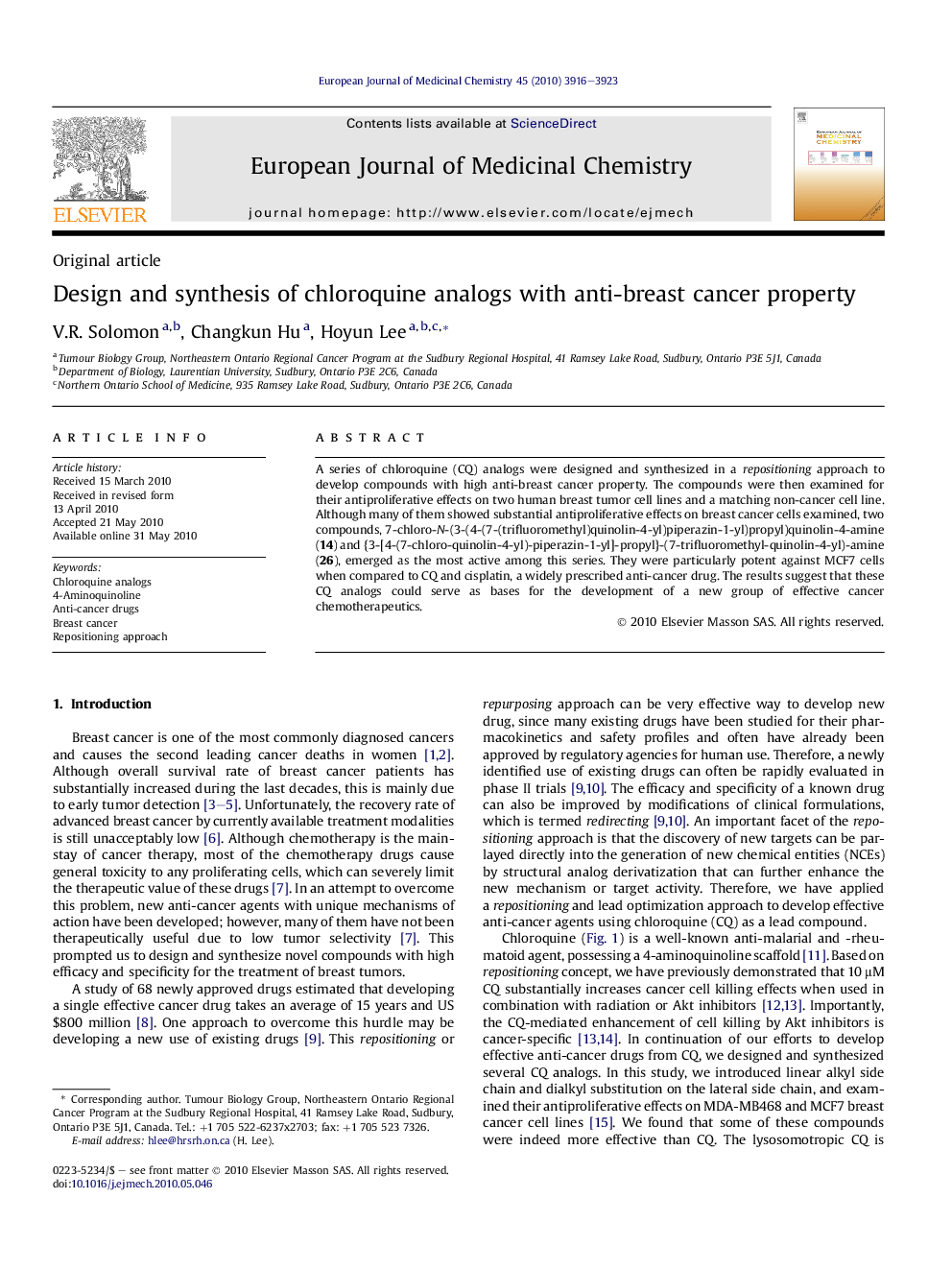| Article ID | Journal | Published Year | Pages | File Type |
|---|---|---|---|---|
| 1394785 | European Journal of Medicinal Chemistry | 2010 | 8 Pages |
A series of chloroquine (CQ) analogs were designed and synthesized in a repositioning approach to develop compounds with high anti-breast cancer property. The compounds were then examined for their antiproliferative effects on two human breast tumor cell lines and a matching non-cancer cell line. Although many of them showed substantial antiproliferative effects on breast cancer cells examined, two compounds, 7-chloro-N-(3-(4-(7-(trifluoromethyl)quinolin-4-yl)piperazin-1-yl)propyl)quinolin-4-amine (14) and {3-[4-(7-chloro-quinolin-4-yl)-piperazin-1-yl]-propyl}-(7-trifluoromethyl-quinolin-4-yl)-amine (26), emerged as the most active among this series. They were particularly potent against MCF7 cells when compared to CQ and cisplatin, a widely prescribed anti-cancer drug. The results suggest that these CQ analogs could serve as bases for the development of a new group of effective cancer chemotherapeutics.
Graphical abstractA series of chloroquine (CQ) analogs were designed and synthesized by a repositioning approach-based lead optimization concept to improve their anti-breast cancer property.Figure optionsDownload full-size imageDownload as PowerPoint slide
